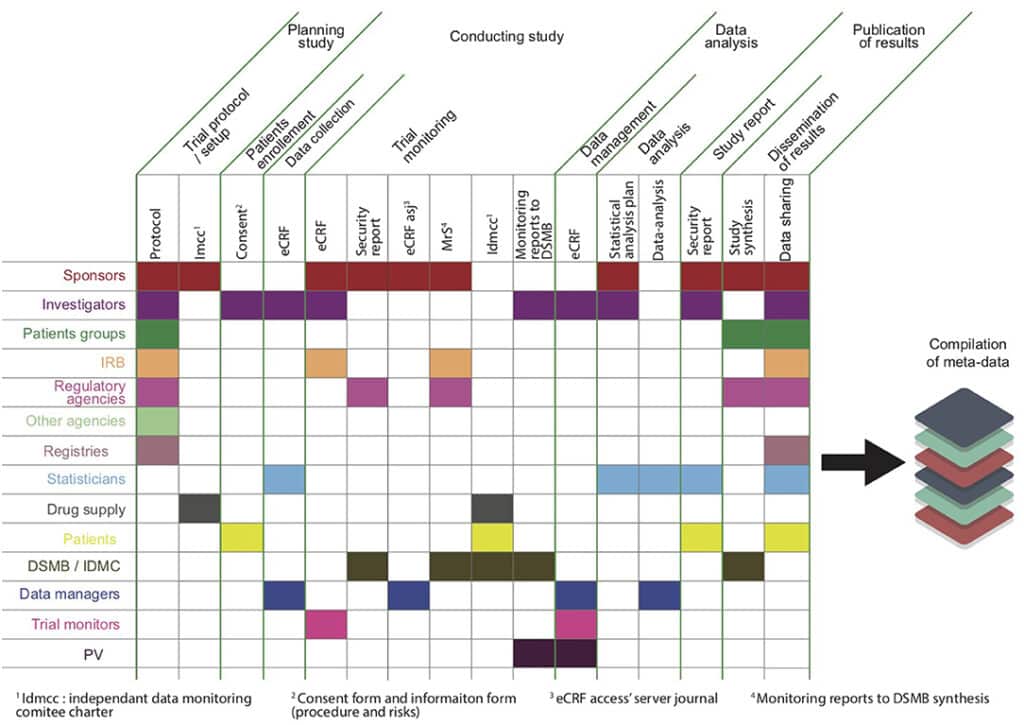Graduate-Level Course
Course Code: IPH-RCT
Credits: 3 (CH)
Level: Master’s / Doctoral
Faculty: EUCLID Global Health and Bioethics
Course Description
This advanced graduate course provides a comprehensive examination of randomized controlled trials (RCTs) (as well as clinical trials in general) as the gold standard for evaluating interventions in medicine, public health, and related fields. The course balances rigorous theoretical foundations with practical aspects of design, conduct, ethics, monitoring, analysis, and reporting of RCTs. Students will critically appraise published trials, identify common pitfalls, and develop skills necessary to design and lead high-quality RCTs.
The course follows the standard EUCLID blended-delivery format:
– 5 study periods** (self-paced reading + required response papers)
– Online multiple-choice quiz** (covering Periods 1–5)
– Major research paper** (4,000–6,000 words)
– Oral examination** (30–45 minutes via video conference)
Course Objectives
By the end of this course, students will be able to:
1. Explain the theoretical foundations and epistemological role of randomization, blinding, allocation concealment, and intent-to-treat analysis in establishing causal inference in clinical and public health research.
2. Critically evaluate the strengths, limitations, and alternatives to RCTs (e.g., pragmatic trials, cluster randomization, non-inferiority/equivalence designs, adaptive designs).
3. Design an ethical, feasible, and statistically sound RCT protocol, including sample size calculation, choice of endpoints, randomization scheme, and interim analysis rules.
4. Identify and mitigate common threats to validity in RCTs (selection bias, performance bias, detection bias, attrition bias, reporting bias) using CONSORT and SPIRIT guidelines.
5. Interpret and critically appraise published RCT results, including subgroup analyses, multiple testing issues, and the implications of stopping rules used by data monitoring committees.
6. Apply regulatory and ethical frameworks (Declaration of Helsinki, ICH-GCP, DSMB charters, equitable subject selection) to real-world trial planning and oversight.
7. Understand advanced analytic methods for RCTs: survival analysis, adjusted analyses, missing data imputation, interim analyses, and sequential designs.
8. Demonstrate mastery through the development of a full RCT proposal (major paper) suitable for IRB/ethics committee submission and defend it orally.
Required Textbooks
Students are required to obtain (physical or electronic) the following core texts (provided in LMS for duration of course):
1. Schulz KF, Grimes DA (eds). **Essential Concepts in Clinical Research: Randomised Controlled Trials and Observational Epidemiology** (2nd ed., Elsevier, 2019).
2. Pocock SJ. **Clinical Trials: A Practical Approach** (Wiley, 1996 or later reprint).
3. Stephens RJ, Baum M, Girling DJ, et al. **A Clinical Trials Manual From The Duke Clinical Research Institute: Lessons from a Horse Named Jim** (Wiley-Blackwell, 2010).
4. DeMets DL, Cook TD, Friedman LM (eds). *tatistical Design, Monitoring, and Analysis of Clinical Trials (Chapman & Hall/CRC Biostatistics Series, 2nd ed., 2021).
Supplementary readings (journal articles, CONSORT statement, ICH-GCP guidelines, etc.) should be consulted in PDF format.
Course Structure (EUCLID Standard Format)
| Period | Topic | Primary Readings (core chapters) | Response Paper Focus |
|——–|——————————————–|——————————————————|———————-|
| 1 | History, rationale, and basic principles of RCTs | Schulz Ch. 1–5; Pocock Ch. 1–3 | Why randomization is essential for causal inference |
| 2 | Trial design: superiority, non-inferiority, equivalence, cluster, pragmatic, and adaptive trials | Pocock Ch. 4–7; DeMets Ch. 2–4 | Choice of study design for a given research question |
| 3 | Ethics, regulation, and trial governance (IRB, DSMB, ICH-GCP) | Duke Manual Ch. 1–4; Schulz Ch. 10–11 | Ethical dilemmas in RCT conduct |
| 4 | Statistical considerations: sample size, interim analysis, monitoring | DeMets Ch. 5–9; Pocock Ch. 8–10 | Design of a data monitoring plan |
| 5 | Analysis, interpretation, and reporting (CONSORT, intent-to-treat, subgroup issues) | Schulz Ch. 6–9; DeMets Ch. 10–12; Pocock Ch. 11–12 | Critical appraisal of a landmark published RCT |
Quiz – Create a set of 10 multiple-choice questions (after Period 5)
Major Paper – MP or Full RCT protocol on a topic of student’s choice
Oral Exam – Defense of the major paper + broader discussion of course concepts
Prerequisites
Graduate standing and basic knowledge of epidemiology and biostatistics.
This course equips future researchers, regulators, and trialists with the intellectual and practical tools needed to design, conduct, and interpret randomized controlled trials at the highest international standards.


